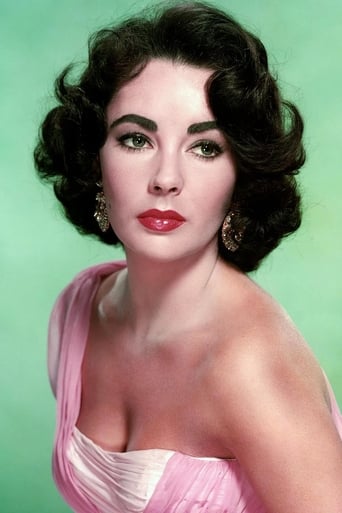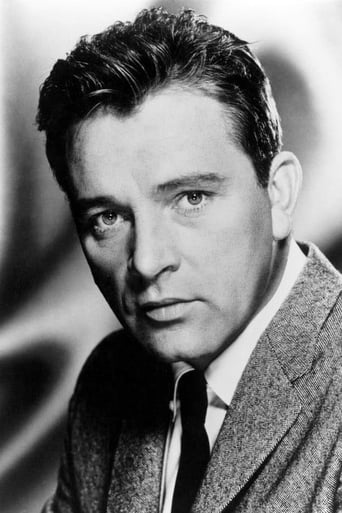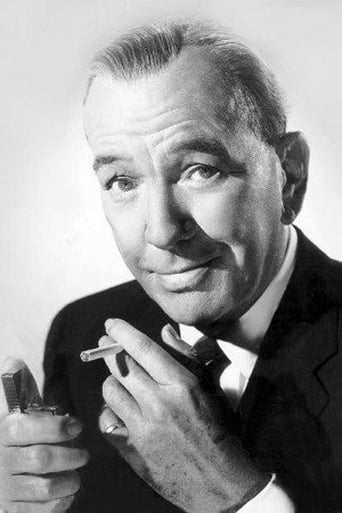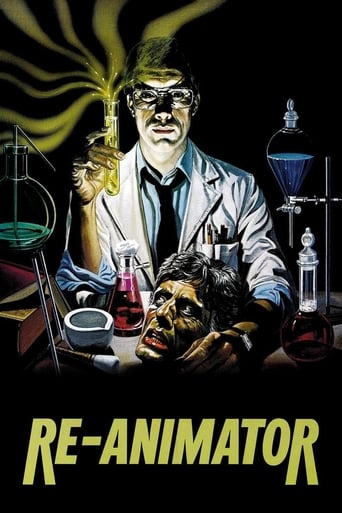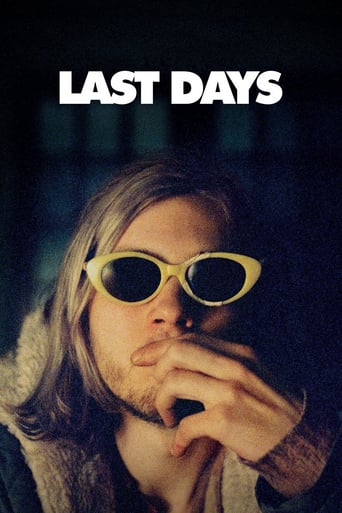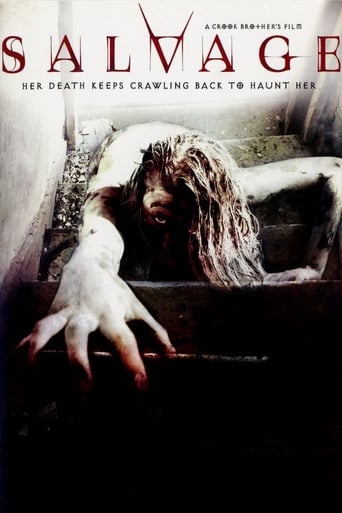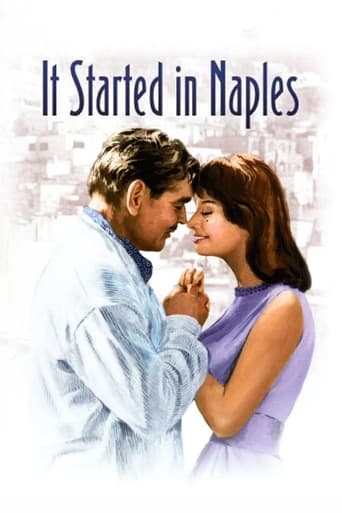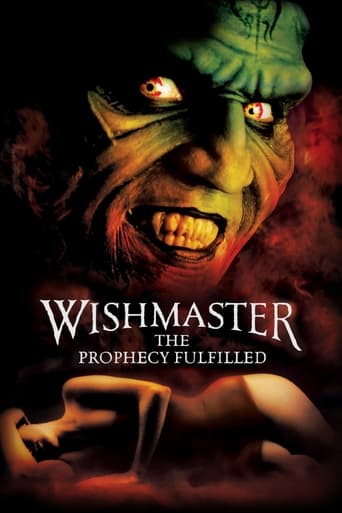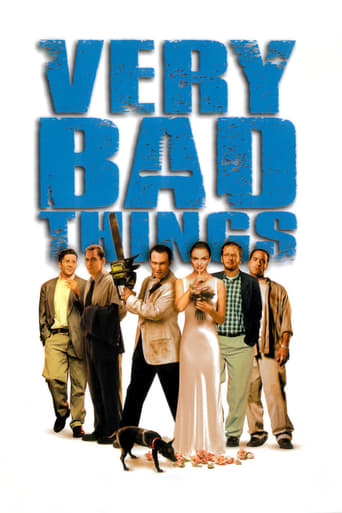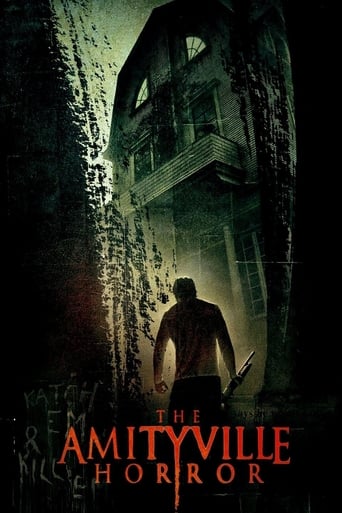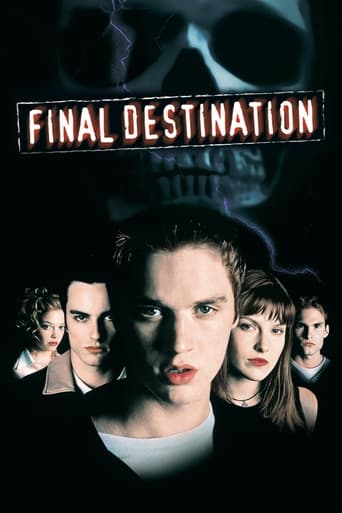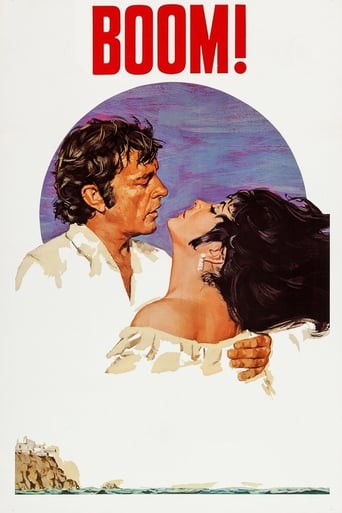
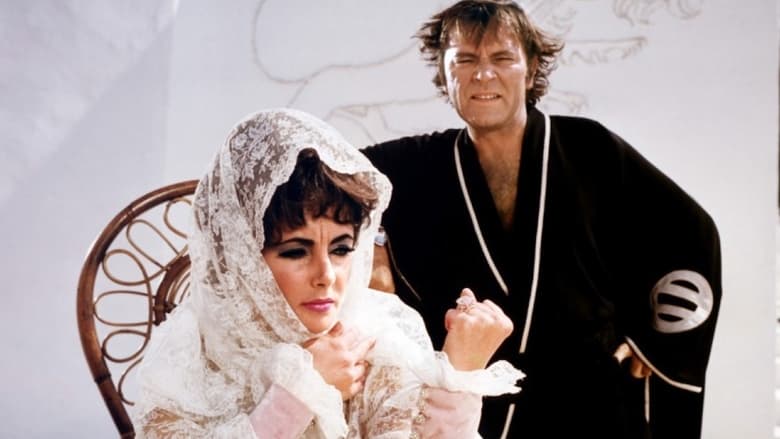
Boom! (1968)
Explores the confrontation between the woman who has everything, including emptiness, and a penniless poet who has nothing but the ability to fill a wealthy woman's needs.
Watch Trailer
Cast


Similar titles
Reviews
Fresh and Exciting
This story has more twists and turns than a second-rate soap opera.
Although I seem to have had higher expectations than I thought, the movie is super entertaining.
By the time the dramatic fireworks start popping off, each one feels earned.
Elizabeth Taylor, Richard Burton, and Noel Coward in a Joseph Losey film from a screenplay by Tennessee Williams with music by John Barry and cinematography by Douglas Slocombe. These credits alone should promise an award-caliber prestige film, but, unfortunately, the production of "Boom" was flawed from the beginning, and arguably one of Elizabeth Taylor's finest late-career performances was buried when the film bombed. The foundation of a film is its screenplay, and, based on one of Williams's lesser known, lesser quality plays, "The Milk Train Doesn't Stop Here Anymore," the film is slow, often tedious, difficult to fully comprehend, and hard to sit through. Taylor and Burton were fresh from career highs with "Who's Afraid of Virginia Woolf?" and "The Taming of the Shrew," and their decision to appear in such an uncommercial endeavor is mystifying. "Boom" was among the first of these missteps that led to the couple's demise at the box office.Flora "Sissy" Goforth is a lonely woman of immense wealth, who reigns supreme over her servants and a nurse upon a rocky Italian island; evidently quite ill, Sissy is demanding and often cruel to those around her. Enter Chris Flanders, a some-time poet with an address book whose pages list the names of deceased women; also known as the "Angel of Death," Flanders washes up on the shores of Sissy's island. For some bitchy spice, Flora's flamboyant friend, the Witch of Capri, arrives and is carried on the shoulders of a muscular servant up to the villa. Taylor is much too beautiful, young, and vibrant to be a dying recluse, although she is excellent in a part that echoes her Oscar-winning Martha. Burton is always worth watching, and his magnificent voice gives some of Williams's lines the poetic justice they deserve. Coward is Coward and is amusing in his few scenes.The visuals are often striking; the Sardinian scenery is magnificent; and a white Mediterranean villa, perched atop a cliff, and filled with striking art works, makes a suitable backdrop for the actors who are garbed in outlandish Japanese-inspired costumes. However, Barry's music is intrusive and inappropriate at times, and, unfortunately, Joseph Losey's direction is self-consciously arty, and he uses much symbolism, even beyond Williams's obvious Goforth, Angel of Death, and Witch of Capri monikers. Taylor is always dressed in white, while Burton is wrapped in a black samurai kimono and often carries a sword. Burton references the film's title several times, which is taken from the boom of the waves against the rocks below the villa. "Boom" is generally slow, pretentious, ponderous, talky, and difficult to recommend to any non-fans of Taylor, Burton, or Williams. However, for Taylor-Burton devotees, the film is essential viewing, and they will not be disappointed by Taylor's performance or Burton's reading of William's lines.
Adaptated by Tennessee Williams from "The Milk Train Doesn't Stop Here Anymore", he obviously pulled in a few of his old friends to get this done. It's a gender-bending allegory with Liz Taylor as rich, dying Sissy Goforth, a bad-tempered recluse in her remarkable clifftop Mediterranean villa. Along comes Dick Burton, a freeloader-cum-Grim Reaper figure who sees it as his mission to help ladies in extremis.Neither of them are right for their roles, but that only adds a certain fascination - a totally earnest rendition would be dull and pretentious. Taylor lets rip here and it's a riot. The highlight is her dinner with Noel Coward playing a role originally meant for a woman. She is wearing an utterly outrageous kabuki outfit while Coward camps it up like there's no tomorrow, which is no doubt the film's theme.The script is full of naff psychology, Taylor is shrill and unpleasant, Burton looks like he's on vacation. With this set-up, Losey hasn't the slightest chance of delivering his usual sophisticated, simmering subtlety, and maybe that was fortuitous - this is so godawful it's brilliant.
How can a film be a 10 and a 1 at the same time? As serious art, Boom is a bomb. Yet, as a testimony, a very camp testimony, to the lives of Elizabeth Taylor, Richard Burton, Noel Coward, and Tennessee Williams, it is literally hysterical. As the Age of Aquarius was dawning on America, what were these pioneers of love, lust, decadence, and existential meaning to do? What is there to say, to do, to perform, two years after Who's Afraid of Virginia Woolf? 1968. the play Hair is delighting Broadway. The hippies have overtaken the Beats. Where can the stars go? To the Old World, Europe, Italy, Capris... The movie reveals their state of mind: preoccupation with death, the emptiness of wealth, sex, and luxury. As we watch this undeniably amusing costume melodrama, we can't help wondering just what Taylor and Burton's "real" life there in Sardinia must have been like. Did they throw tantrums when their whims went unsatisfied, or was it the opposite? I'll have to leave the answer to the biographers. But this film makes it impossible not to imagine them all there in Italy, trying with desperation NOT to be what they were portraying. That is what makes the film intriguing.
"Boom" has garnered itself a something of a reputation. With heavyweights Taylor, Burton, Noel Coward, Tennessee Williams and Joseph Losey, one might be tempted to think, how bad could it be? Well, it's a lot worse than you could possibly imagine.The sad and disturbing fact of "Boom" is that it seems to signal the decline and fall of the aforementioned heavyweights. It was only director Joseph Losey who having plummeted the depths with "Modesty Blaise" and "Boom" (some may wish to add "Secret Ceremony"), managed to recuperate and in 1970 create his best work, the wonderful "Go-Between".Saddest of all is the work of Tennesee Williams. From the mid-forties until the early sixties, Williams penned a number of plays which have gained classic status, remaining in theater repertory throughout the world, many becoming much praised films. When William's muse deserted him, probably owing to his notorious substance abuse, it deserted him for good. Williams at his best is an actor's dream, providing many unforgettable performances. (Were Ava Gardner or Deborah Kerr ever better than in "Night of the Iguana" ? ) Taylor in particular, shone in both "Cat on a Hot Tin Roof" and "Suddenly Last Summer". There is an anecdote in which supposedly Taylor asks John Gielgud whether he would teach her to play Shakespeare, to which he replied "if you will teach me to play Tennessee Williams". Had Gielgud seen "Boom" he would have held his tongue. Taylor simply has never been worse, turning in a cringe inducing performance. Despite her face photographing well, she is decidedly podgy. Besides the physical decline, from this time onwards she would basically lose credibility as a serious actress with a string of completely forgettable (and worse) roles to her credit.Much the same could be said of Burton. Following his short lived theatrical stardom, he won fame and fortune in Hollywood. But the body of his work from this point onwards (1968) would be unremarkable to say the least.Noel Coward had long ceased being a force in the theater where his drawing room comedies had been replaced by the likes of Williams and the British "angry young men". He seems to be enjoying himself camping it up, but barely manages to amuse, that from the man who claimed such a talent.The only cast member who maintains her dignity is young Joanna Shimkus, who in a few years would forego a promising screen career to become Mrs. Sidney Poitier."Boom" reeks of self indulgence; it's simply out of control. A rather sad pointer to careers gone wrong rather than a camp fun fest as some have suggested.


